By Stacey Flores Chandler, Reference Archivist
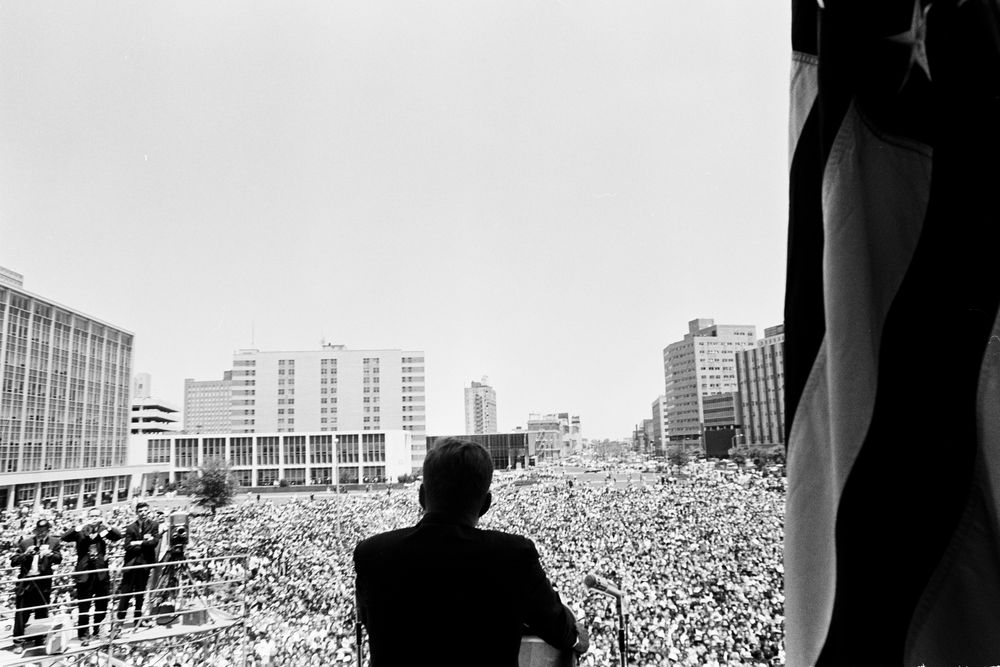
Archivists at the John F. Kennedy Presidential Library have seen a lot of JFK quote memes, usually sent from people who saw them online and wanted to check out their authenticity. We love a good puzzle, and verifying viral quotes can be especially tricky: an unsourced quote next to a JFK photo can make for a meme that reaches thousands on social media before anyone has a chance to correct or contextualize it.
Though the internet has sped the process along, this isn’t really a new phenomenon. Here at the Library, our favorite example of a viral quote with a complicated history is one that regularly turns up in memes, blogs, and Twitter and Facebook posts. But even before the days of digital publication, it made appearances in magazines, newspapers, and books, and has been printed on tote bags, t-shirts, and coffee mugs – always attributed to John F. Kennedy. It’s so recognizable that politicians still occasionally quote it in their speeches and writings:
“One person can make a difference and everyone should try.”
There’s just one problem: we’ve never found concrete evidence that John F. Kennedy actually said this.
We receive more requests to verify this quote than any other, and for good reason; while it seems to be everywhere, it’s always missing some key information. It’s almost never linked to a particular speech or document and usually appears undated or introduced simply with “JFK once said” (a phrase archivists tend to greet with a strong dose of skepticism). And the final clue that something is amiss: it doesn’t seem to appear in newspapers or magazines until after the President’s death. Without even basic proof that JFK said it, how did it become so widespread?
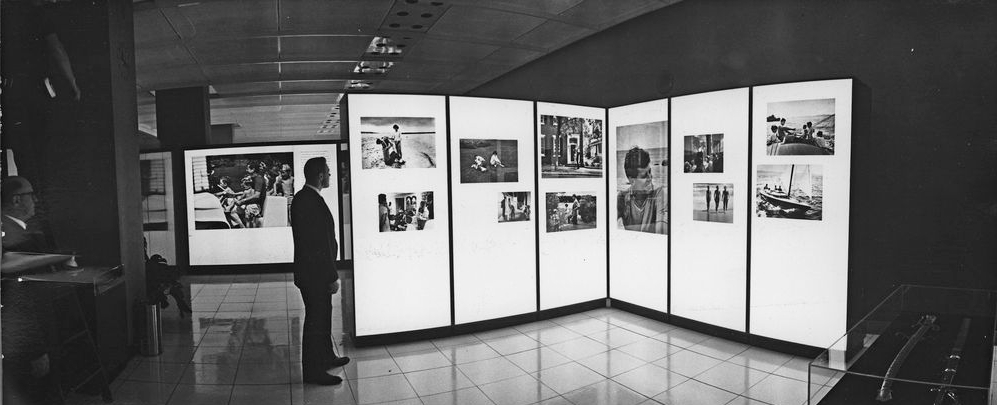
The backstory is complicated. It starts in 1964, when the John F. Kennedy Presidential Library was just getting started and the staff was busy designing a traveling exhibit to showcase the future Library’s artifacts and documents. Former First Lady Jacqueline Kennedy helped out by providing a statement for the exhibit brochure that was picked up by reporters across the country as they covered the tour. She wrote:
“John Kennedy believed so strongly that one’s aim should not just be the most comfortable life possible, but that we should all do something to right the wrongs we see, and not just complain about them. We owe that to our country, and our country will suffer if we don’t serve her. He believed that one man can make a difference – and that every man should try.“
When Look magazine printed the quote in 1966, it was still rightly attributed to the former First Lady. But in researching the quote’s history, we’ve found that by the early 1980s, newspapers had started to shift their language about it. Where writers or their interviewees had once introduced the quote by noting “John F. Kennedy believed” in the idea, some began to state that “John F. Kennedy said” the line himself – cutting Jacqueline Kennedy out of the story completely.
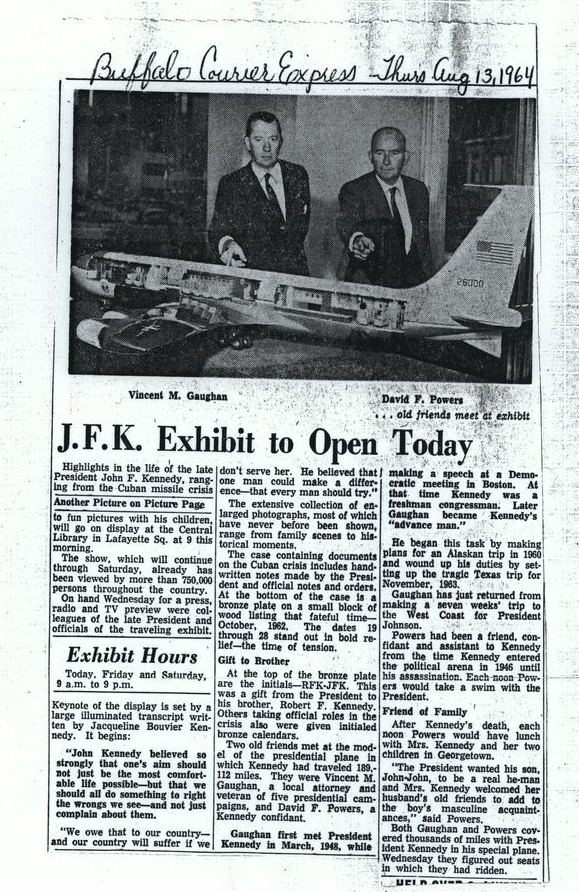
Further complicating matters, Robert F. Kennedy also used the phrase during his 1968 Presidential campaign, telling students at Idaho State University that “the spirit of youth” included the belief “that one man can make a difference and that every man should try.” Robert Kennedy repeated the idea regularly, sometimes dropping the gendered language to say “one person can make a difference and each of us must try.” He incorporated the line into so many of his speeches that it became closely associated with him, too; in fact, President Bill Clinton included it in his 1993 speech at a memorial Mass in Robert Kennedy’s honor.
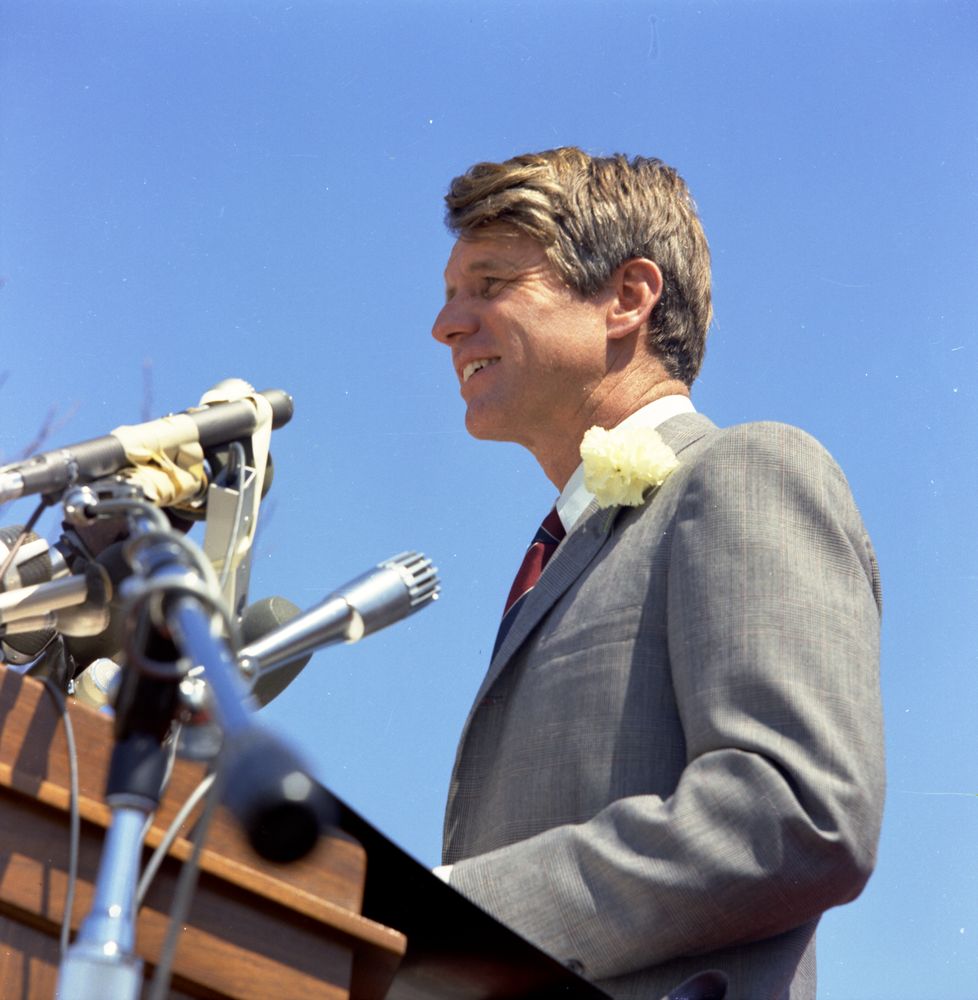
The fact that we haven’t uncovered an exact match for this phrase in John F. Kennedy’s speeches or writings doesn’t mean that he never expressed the idea in his lifetime. After all, the spirit of the quote fits with many of his statements about the value of public service, including one of his most famous addresses on the subject at Vanderbilt University. It’s also possible that, like so many of JFK’s quotable phrases, it exists only in a letter that’s now part of a large (fully digitized!) collection of outgoing Presidential correspondence. But without archival evidence that directly links the President to these words, we’ve had to put this quote in JFK’s “unverified” column for now – and reassign the credit to Jacqueline Kennedy.
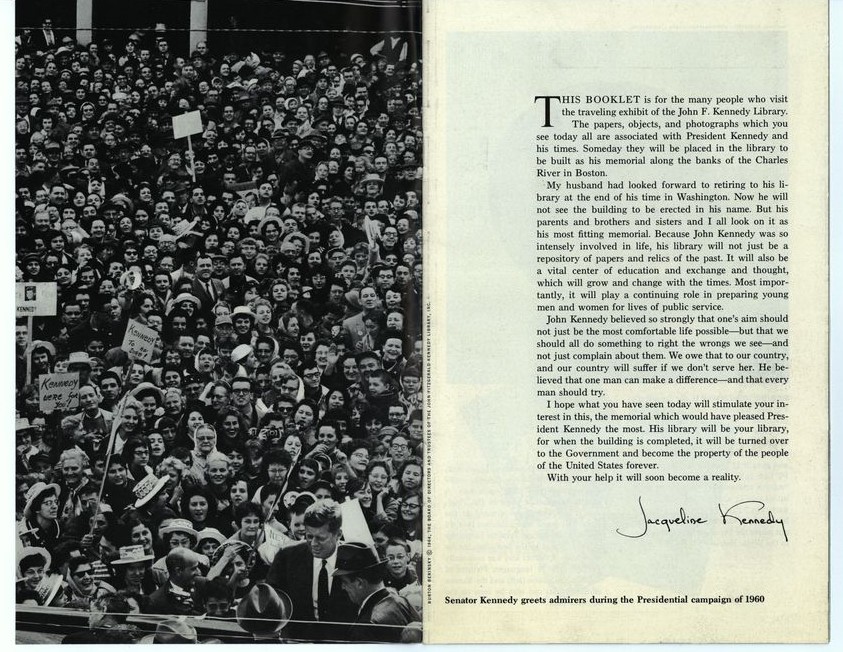
The over 50,000 results generated from an online search of this quote are a great reminder of the value of what archivists and librarians call “information literacy” – the ability to recognize when a claim or source needs some additional investigation. Now that people in many parts of the world enjoy unprecedented access to information, these skills are more important than ever, and archivists are always here to help. If you ever come across a JFK quote you want to know more about, send it to us (even in meme form!) at Kennedy.Library@nara.gov.
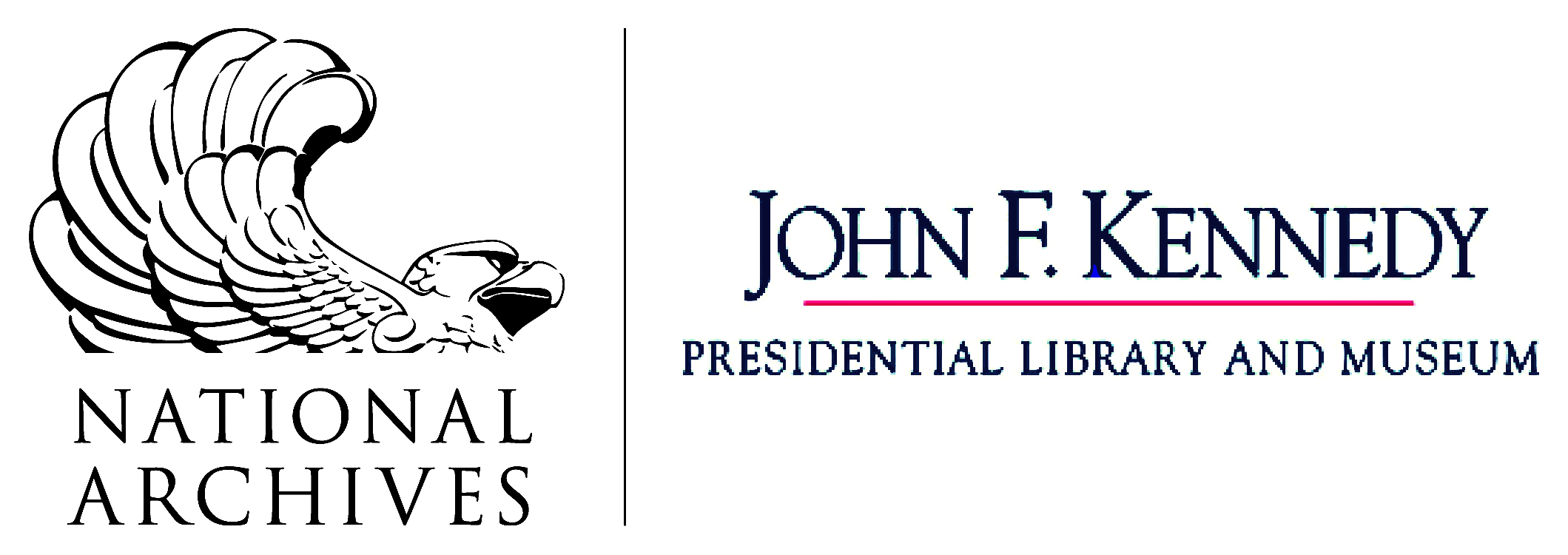
What a nice post author.Thank you.
Wow! I have this quote on a little tile that I purchased at The Sixth Floor Museum a few years back. I assumed I could trust them with authenticating this as one of his quotes!
[…] some context. We are always happy to try to track these down for you — we’ve even written a blog post that investigates one of the most viral quotes — but we also want to let you in on some of the […]
This man is the legend. This world has lost a legend and will be forever grieving for this loss. As always inspired by Kennedy’s words. Thank you for sharing.
This exploration of JFK’s legacy really resonates with me! The quote perfectly captures the spirit of individual action and collective responsibility. It’s inspiring to think about how each of us can contribute to change in our own way. Thank you for shedding light on this important message!
This quote really encapsulates the spirit of JFK’s message about civic engagement and individual impact. It’s inspiring to think that each of us has the potential to make a difference, no matter how small our actions may seem. Thanks for sharing this insightful post and bringing attention to the archives!